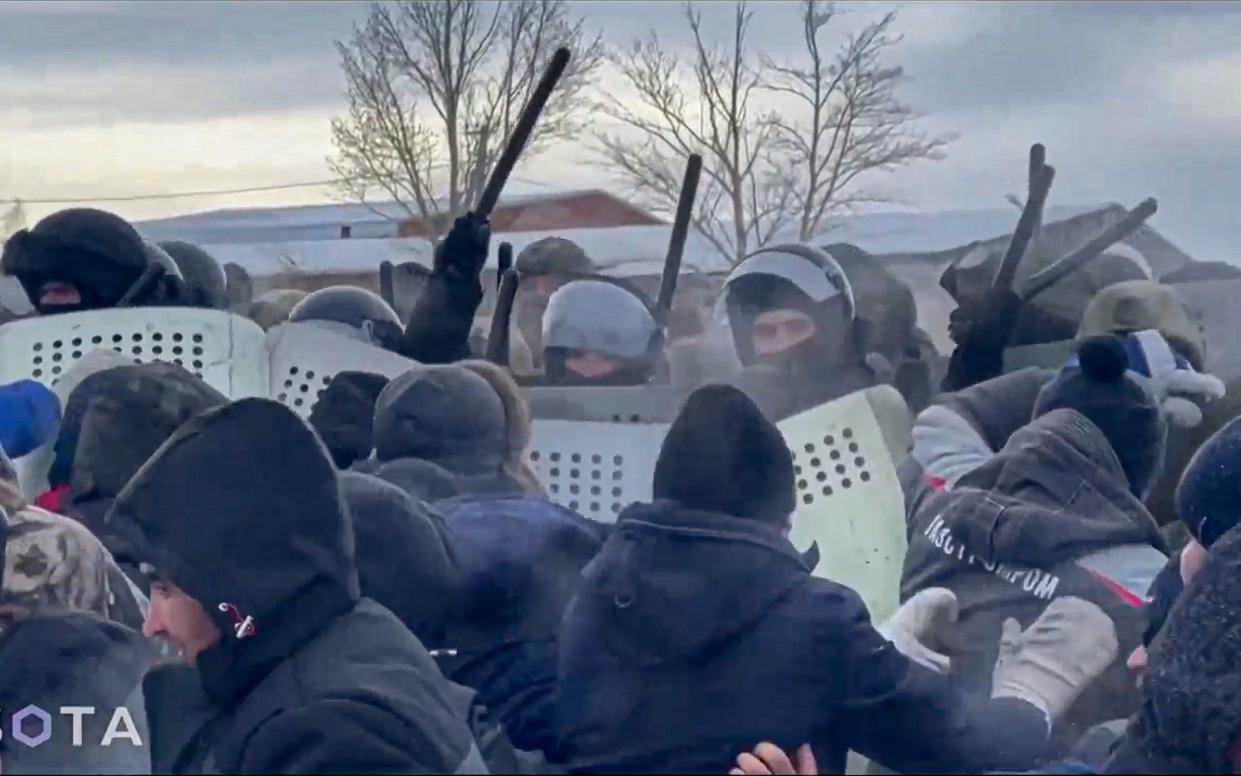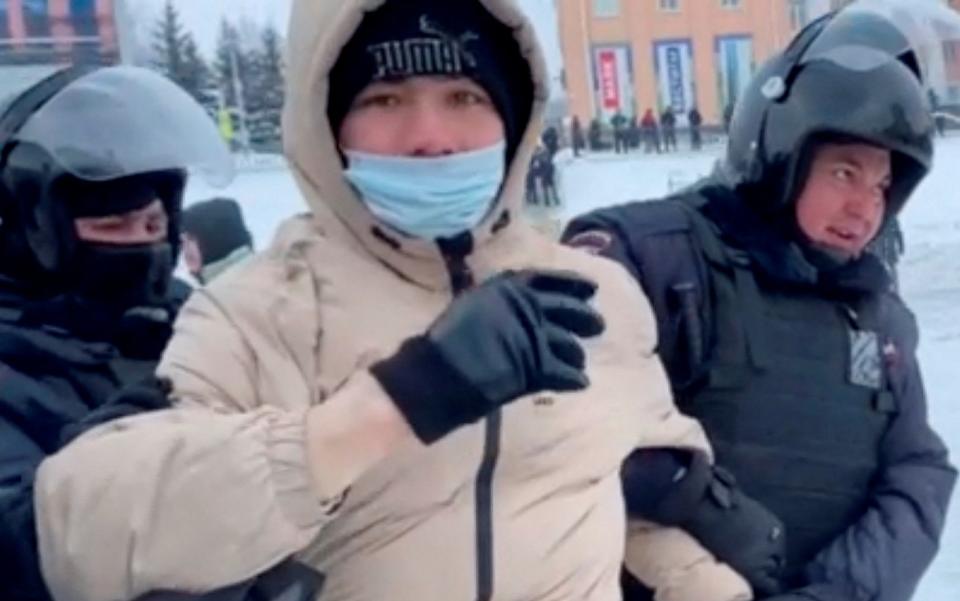Russia facing further anti-Kremlin protests in remote region

Russian officials have warned of severe punishment for protesters after anti-Kremlin demonstrations broke out in a remote region.
Police in Bashkortostan, 900 miles east of Moscow, have arrested 45 people since protests broke out on Wednesday, in the largest demonstrations in Russia since the 2022 invasion of Ukraine.
“Protests in Bashkortostan began in the city of Baymak,” said OVD-Info, a Russian human rights group. “The next day, protests spread to the capital of the republic, Ufa.”
The protests were triggered by the imprisonment of Fail Alsynov, a Bashkir activist who was sentenced to four years on Wednesday for making an alleged racist slur.
His supporters say he is being punished for leading opposition to plans by well-connected Russian businessmen to develop mines.
In a video posted on Sunday on the Telegram social media channel, Radiy Khabirov, Bashkortostan’s Kremlin-appointed leader, said that protesters would be punished.

“For those detained by law enforcement officers, this is immediately an end to their future careers,” he said.
At least 40 people were injured in the small town of Baymak on Wednesday in clashes between riot police and several thousand protesters. Russian media also reported that 1,000 people protested peacefully in Ufa on Friday, triggering more arrests.
Protests are banned in Russia, but resentment in some parts of the country towards the government has been building since the full-scale invasion of Ukraine and the mobilisation of men into the army.
The Kremlin has pushed mobilisation heavily along Russia’s fringes, including in Bashkortostan on the southern edge of the Ural Mountains. Roughly a third of Bashkortostan’s 4 million people are ethnic Bashkirs, a Turkic group linked closely to Tartars and Kazakhs.
The protests come as the Kremlin prepares for a presidential election in March. Vladimir Putin wants to use the election to show popular support for his war, but gripes and protests by ordinary Russians have undermined this messaging.
As well as protests in Bashkortostan, thousands of Russians are enduring a freezing winter after central heating breakdowns. Wives of mobilised soldiers are also continuing to call for their husbands to be returned from the front line.

 Yahoo News
Yahoo News 
